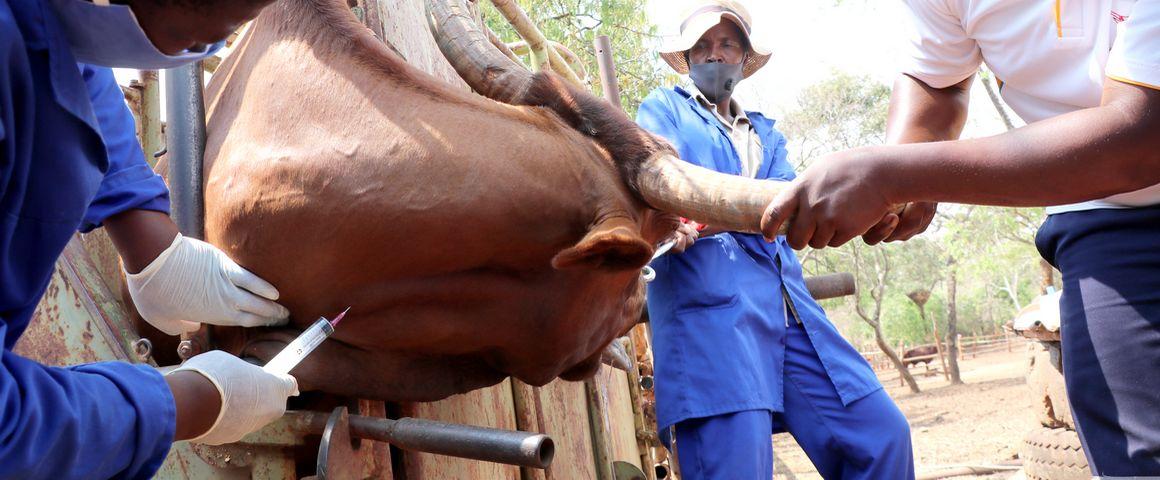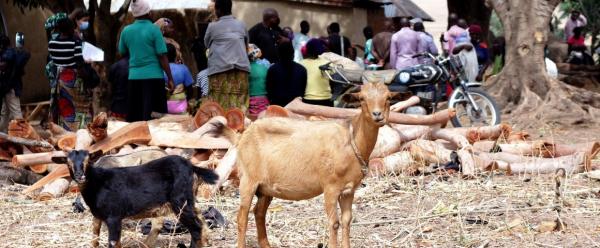Results & impact 28 October 2025
- Home
- CIRAD news
- News
- Disease surveillance in Zimbabwe | CAZCOM
CAZCOM | Working towards autonomy in animal disease surveillance in Zimbabwe

Taking a blood sample from a cow as part of the CAZCOM project in Zimbabwe © A. Jimu
Key figures about CAZCOM
3 objectives: developing skills – building technical capacities in molecular biology – implementing effective, autonomous surveillance systems for animal and zoonotic diseases
2 years of project implementation
22 technical training courses provided (14 in the field and 8 in the laboratory)
1 e-learning course on the epidemiology and surveillance of animal and zoonotic diseases
7 masters students supervised in the context of the project
640 hours of lessons taught
1 technical platform for molecular biology of international calibre equipped and operational within the Faculty of Veterinary Science at the University of Zimbabwe.
Links with national veterinary services are being strengthened and collaborations with international research institutions are underway, along with the development of partnerships with the private sector
A follow-up with the PACMAN project
CAZCOM is now supplemented and intensified by the PACMAN programme. With 2 million euros of funding from the Agence Française de Développement, this new project aims to train even more staff members in diagnostic techniques and to turn the molecular biology laboratory into a true biotechnology platform. This will help to speed up response times for health actions from several months to just a few days during epizootic events.
There can be no development without an autonomous capacity for knowledge production. This belief is the basis for the decision to make training one of CIRAD’s four ambitions.
Find out more about our teaching and training activities



























